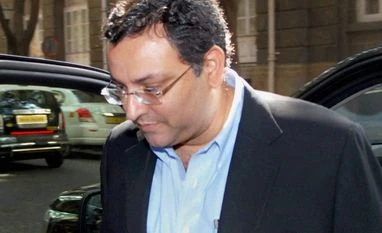As the roles of Tata group’s independent directors are under scanner, following the ouster of former chairman Cyrus Mistry, it has come to the fore what proxy advisory firm Stakeholders’ Empowerment Services (SES) had termed three of them — Nusli Wadia, Deepak Parekh and Keki Dadiseth — as ‘non-independent’ over a year before the crisis. Ahead of the annual general meeting (AGM) of Indian Hotels on August 10, 2015, the proxy advisory firm raised red flags on the long tenure of independent directors Keki Dadiseth and Deepak Parekh, who at that point were associated with the company for 15 years.
Three other AGMs of Tata Chemicals, Tata Steel and Tata Motors followed. In advisory reports for shareholders of these companies, SES red flagged the long tenure of Nusli Wadia.
Wadia had by then served 34 years on the board of Tata chemicals, 36 years in Tata Steel and 17 years in Tata Motors.
“Mr Nusli Wadia is associated with the Company for more than 10 years. SES as a good governance practice and spirit behind the provisions of Section 149 of the Companies Act, 2013 considers Director associated with the Company for more than 10 years as Non- Independent. Therefore, SES classifies him as Non-Independent director on governance basis,” the proxy firm said in these reports.
Subsection (11) of this section provides that no independent director should hold office for more than two consecutive terms (of five years each). But, he would be eligible for re-appointment after a cooling off period of three years, during which he should not be associated with the company directly or indirectly.
Though proxy firms such as SES have issued such advisories based on ‘spirit’ of the section, company managements have often stuck to the ‘letter’, which is interpreted that the new company law provisions could be applied only prospectively.
More From This Section
One of the rare examples of directors stepping down after a long tenure was Ratan Tata himself. Soon after the new companies bill passed in Lok Sabha in December 2012, Tata who had a 33-year stint in Wadia’s Bombay Dyeing Tata stepped down. This move also coincided with the baton passing on to Mistry in Tata group. No specific reason was given for his exit from Bombay Dyeing.
Following the latest developments, the new management controlled by Ratan Tata has sought to remove only Wadia and there is no such move reported on other two. SES said if the removal comes up for voting it would vote in favour of such move considering a divided board is bad for all stakeholders and bad for governance. “We would need to see the content of the notice. We would also have to see what the Mistry camp has to say about these. We will evaluate everything. But, we will still vote against (Wadia) as we don’t want a divided board,” JN Gupta, managing director, SES said.
Institutional investor Advisory Services (IiAS), another proxy firm has wondered why Wadia was singled out. “Nusli Wadia, current Chairperson of the Wadia Group, is an old Tata associate. It therefore surprised markets when, as a senior independent director, he decided to go against the Tata Group and backed Cyrus Mistry’s bid to remain Chairperson of Tata Chemicals. But what is more surprising is that among all the independent directors, Tata Sons has sought the ouster of only Nusli Wadia. Singling him out adds fuel to the rumours that the differences are personality-driven, rather than issue based,” IiAS said in a note titled 'Removal of Independent Directors — A Sword of Damocles'.
Citing the 10% plus holding of Tata Sons in each of these companies, IiAS concluded that Tata Sons was within its rights to ask for removal. While it expressed concerns that the institution of independent directors might get undermined by such moves, it acknowledged that a promoter might be left with little choice, if a director becomes a “disruptive force” on the board.
READ OUR FULL COVERAGE ON THE US PRESIDENTIAL ELECTION
READ OUR FULL COVERAGE ON THE US PRESIDENTIAL ELECTION
)